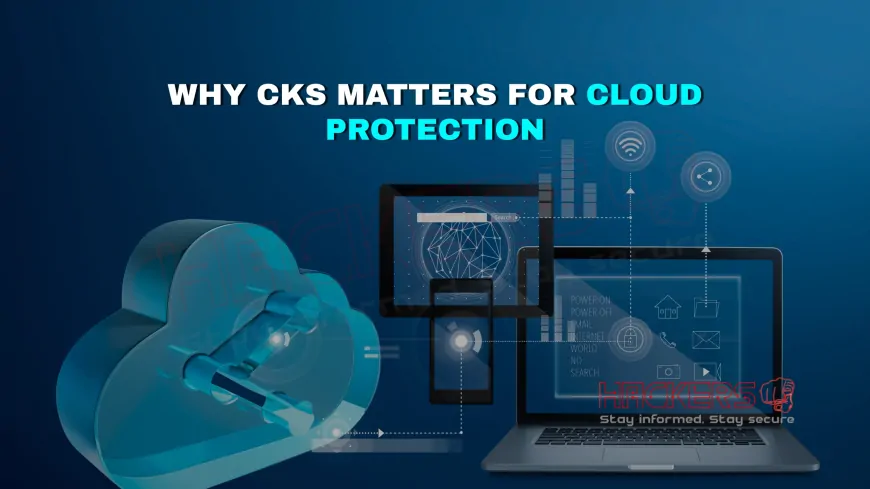The Role of CKS Professionals in Protecting Modern Cloud Environments
As businesses increasingly shift to cloud-native architectures, Kubernetes has emerged as the go-to platform for orchestrating containerized applications. Its flexibility and scalability make it a powerhouse, but they also introduce complex security challenges. Enter the Certified Kubernetes Security Specialist (CKS) professionals experts trained to safeguard Kubernetes clusters and ensure the security of modern cloud environments. With cyber threats on the rise, CKS professionals play a pivotal role in protecting sensitive data, ensuring compliance, and maintaining the integrity of cloud-native systems. Whether you’re a beginner curious about cloud security or an IT professional aiming to specialize, understanding the role of CKS professionals can inspire you to dive into this critical field. In this blog post, we’ll explore how CKS professionals secure modern cloud environments, the skills they bring to the table, and why their expertise is in high demand. Let’s uncover the vital contributions of CKS professionals in today’s cloud-driven world!

Table of Contents
- Why CKS Professionals Are Essential
- What Is a CKS Professional?
- Key Responsibilities of CKS Professionals
- Tools and Skills CKS Professionals Use
- Real-World Impact of CKS Professionals
- Industry Demand for CKS Expertise
- Challenges Faced by CKS Professionals
- Conclusion
- Frequently Asked Questions
Why CKS Professionals Are Essential
Modern cloud environments, powered by Kubernetes, enable organizations to deploy applications quickly and efficiently. However, the distributed nature of Kubernetes clusters, combined with the use of containers, introduces unique security risks. Misconfigured clusters, vulnerable container images, or weak access controls can expose systems to cyberattacks, leading to data breaches or service disruptions. CKS professionals are trained to address these risks, ensuring that cloud environments remain secure, compliant, and resilient.
With industries like finance, healthcare, and e-commerce relying on Kubernetes for critical applications, the expertise of CKS professionals is crucial. They bridge the gap between development and security, enabling organizations to innovate without compromising safety.
What Is a CKS Professional?
A Certified Kubernetes Security Specialist (CKS) is an IT professional who has earned the CKS certification from the Cloud Native Computing Foundation (CNCF). This certification validates their ability to secure Kubernetes clusters and containerized workloads. The CKS builds on the Certified Kubernetes Administrator (CKA) certification, focusing specifically on security tasks like cluster hardening, container security, and runtime monitoring.
CKS professionals are equipped to handle real-world security challenges in Kubernetes environments. They use tools like Trivy, Falco, and kube-bench to identify vulnerabilities, enforce security policies, and respond to incidents, making them invaluable in modern cloud ecosystems.
Key Responsibilities of CKS Professionals
CKS professionals have a wide range of responsibilities to ensure the security of Kubernetes-based cloud environments. Here are some of their core duties:
- Cluster Hardening: Configuring Kubernetes components, like the API server and kubelet, to minimize vulnerabilities and reduce the attack surface.
- Container Security: Scanning container images for vulnerabilities and ensuring only trusted images are deployed.
- Access Control: Implementing Role-Based Access Control (RBAC) to restrict access to Kubernetes resources based on user roles.
- Network Security: Setting up network policies to control traffic between pods and external services, preventing unauthorized access.
- Runtime Monitoring: Using tools to detect and respond to suspicious activities in running containers.
- Compliance: Auditing clusters to ensure they meet industry standards like GDPR, HIPAA, or PCI-DSS.
These responsibilities make CKS professionals critical to maintaining secure and compliant cloud environments.
Tools and Skills CKS Professionals Use
CKS professionals rely on a variety of tools and skills to secure Kubernetes environments. Below is a table summarizing the key tools and their purposes:
| Tool | Purpose | Example Use Case |
|---|---|---|
| Trivy | Scans container images for vulnerabilities | Checking a Docker image for outdated libraries |
| Falco | Monitors runtime behavior of containers | Detecting unauthorized file access in a pod |
| kube-bench | Audits clusters against CIS benchmarks | Ensuring API server security settings |
| AppArmor | Enforces security profiles for containers | Restricting container filesystem access |
| Seccomp | Filters container system calls | Blocking risky syscalls in a container |
In addition to tools, CKS professionals master skills like configuring network policies, implementing RBAC, and responding to security incidents, ensuring comprehensive protection for cloud environments.
Real-World Impact of CKS Professionals
CKS professionals make a tangible difference in securing cloud-native applications. Here are some real-world scenarios where their expertise shines:
- Preventing Data Breaches: By scanning container images with Trivy, CKS professionals ensure vulnerabilities are addressed before deployment.
- Ensuring Compliance: They use kube-bench to audit clusters, helping organizations meet regulatory requirements like GDPR or PCI-DSS.
- Responding to Threats: With Falco, they detect and mitigate runtime threats, such as unauthorized processes in containers.
- Securing Microservices: They implement network policies to isolate microservices, reducing the risk of lateral attacks within a cluster.
- Hardening Infrastructure: By configuring RBAC and security profiles, they limit access and minimize attack surfaces.
These contributions help organizations maintain secure, reliable, and compliant cloud environments, protecting both data and reputation.
Industry Demand for CKS Expertise
The adoption of Kubernetes across industries has created a surge in demand for CKS professionals. Companies in finance, healthcare, retail, and technology rely on Kubernetes to run mission-critical applications, and they need experts to secure these systems. Roles like Kubernetes Security Engineer, DevSecOps Engineer, and Cloud Security Architect are increasingly common, with CKS certification serving as a key differentiator in the job market.
CKS professionals are valued for their ability to bridge development and security, ensuring that cloud-native applications are both innovative and secure. This demand is only expected to grow as cloud adoption accelerates.
Challenges Faced by CKS Professionals
Securing Kubernetes environments is no easy task. CKS professionals face several challenges, including:
- Complex Configurations: Kubernetes and its security tools require precise configurations, which can be time-consuming and error-prone.
- Evolving Threats: Cyber threats constantly evolve, requiring CKS professionals to stay updated on the latest attack vectors.
- Balancing Security and Speed: They must secure systems without slowing down development pipelines, a key challenge in DevSecOps.
- Compliance Requirements: Meeting strict regulatory standards across industries adds complexity to their role.
Despite these challenges, CKS professionals are equipped with the skills and tools to overcome them, making them indispensable in modern cloud environments.
Conclusion
CKS professionals play a vital role in protecting modern cloud environments, ensuring that Kubernetes clusters and containerized applications remain secure, compliant, and resilient. By mastering tools like Trivy, Falco, and kube-bench, and applying skills like cluster hardening and RBAC, they safeguard critical systems against evolving threats. Their expertise is in high demand across industries, making the CKS certification a valuable credential for anyone looking to excel in cloud-native security. Whether it’s preventing data breaches, ensuring compliance, or securing microservices, CKS professionals are at the forefront of building safe and innovative cloud ecosystems. If you’re passionate about cloud security, consider pursuing the CKS to make a meaningful impact in this dynamic field!
Frequently Asked Questions
What is a CKS professional?
A CKS professional is someone who has earned the Certified Kubernetes Security Specialist certification, validating their expertise in securing Kubernetes clusters.
What does the CKS certification cover?
It covers cluster hardening, container security, RBAC, network policies, and runtime monitoring using tools like Trivy and Falco.
Why are CKS professionals important?
They protect Kubernetes-based cloud environments from cyber threats, ensuring security and compliance for critical applications.
What tools do CKS professionals use?
They use tools like Trivy for image scanning, Falco for runtime monitoring, and kube-bench for cluster auditing.
What industries need CKS professionals?
Industries like finance, healthcare, e-commerce, and technology rely on CKS professionals to secure Kubernetes environments.
How do CKS professionals ensure compliance?
They audit clusters with tools like kube-bench to meet standards like GDPR, HIPAA, or PCI-DSS.
What is cluster hardening?
Cluster hardening involves securing Kubernetes components, like the API server, to reduce vulnerabilities and attack surfaces.
How do CKS professionals secure containers?
They scan images for vulnerabilities with tools like Trivy and use AppArmor or Seccomp to restrict container capabilities.
What is RBAC in Kubernetes?
Role-Based Access Control (RBAC) manages access to Kubernetes resources based on user roles and permissions.
How do CKS professionals handle runtime threats?
They use tools like Falco to monitor and detect suspicious activities in running containers.
Is the CKS certification in demand?
Yes, as Kubernetes adoption grows, companies seek CKS professionals for roles like DevSecOps and Cloud Security Engineer.
Do CKS professionals work in DevSecOps?
Yes, they integrate security into DevOps pipelines, ensuring secure and efficient development workflows.
What is a container image?
A container image is a portable package containing an application and its dependencies, used to create containers.
How do CKS professionals prevent data breaches?
They scan images, harden clusters, and monitor runtime behavior to identify and mitigate vulnerabilities.
Can beginners become CKS professionals?
Beginners can pursue the CKS, but prior Kubernetes knowledge, like the CKA certification, is recommended.
What is kube-bench?
kube-bench is a tool that audits Kubernetes clusters against CIS benchmarks to ensure secure configurations.
How do network policies help CKS professionals?
Network policies control traffic between pods and services, preventing unauthorized access in Kubernetes clusters.
What challenges do CKS professionals face?
They face challenges like complex configurations, evolving threats, and balancing security with development speed.
How does the CKS certification benefit a career?
It enhances employability, increases salary potential, and establishes expertise in cloud-native security.
Can CKS professionals work remotely?
Yes, many CKS roles, like cloud security engineering, offer remote work opportunities due to the nature of cloud environments.
What's Your Reaction?










































































